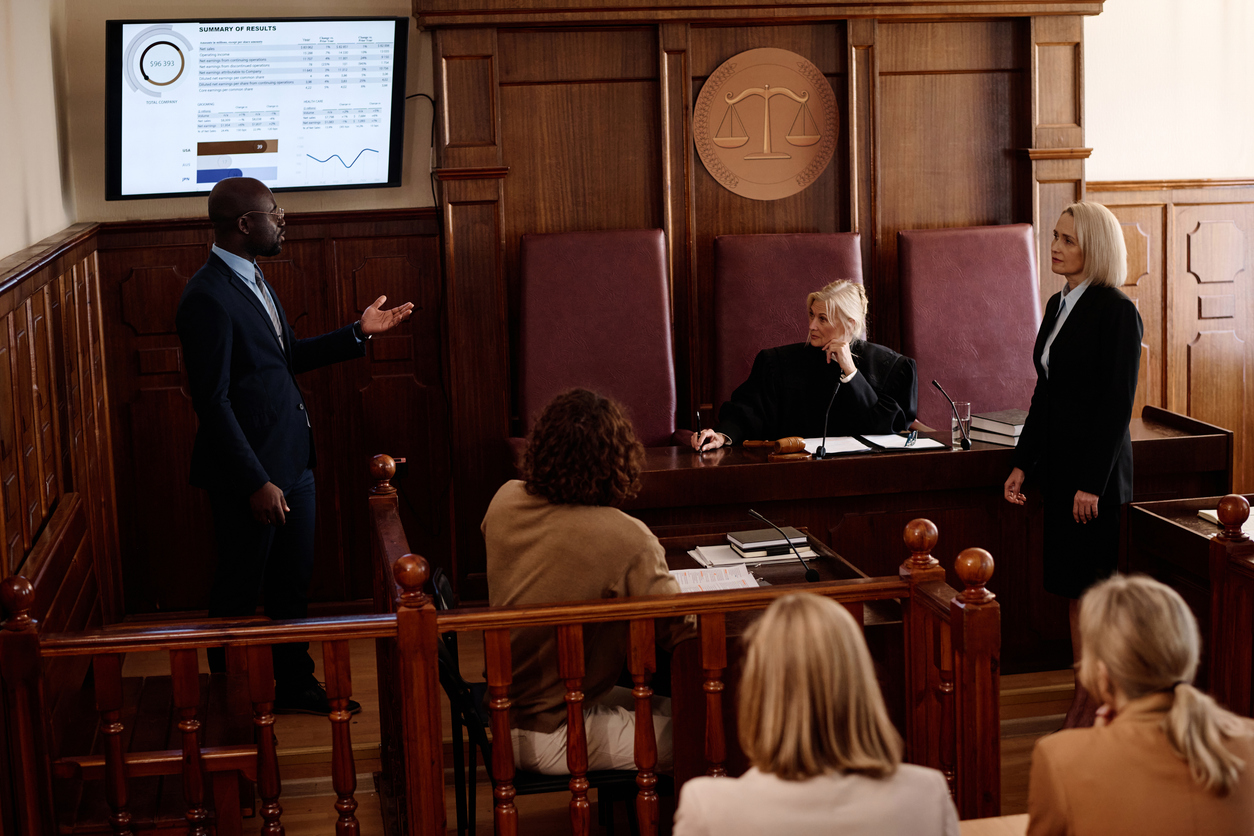How AI Can Accelerate Deposition Preparation in Personal Injury Cases
Deposition preparation in personal injury cases is notorious for being exhaustive and time-consuming, especially when dealing with voluminous records, nuanced testimony, and the pressure to identify minute inconsistencies. The advent of legal AI, however, is quietly revolutionizing how attorneys tackle these challenges. At Paxton, our mission is to help legal professionals turn what once felt overwhelming into a process that is not only manageable, but strategic and deeply client-centric.
The Unique Demands of Deposition Prep in Personal Injury Litigation
Deposition preparation for personal injury matters involves much more than just reviewing discovery packets. Attorneys have to:
- Dissect complex medical records and timelines to pinpoint causation and damages
- Spot relevant inconsistencies across witness statements and prior depositions
- Frame precise questions tailored to each witness’s knowledge and memory
- Navigate a mountain of procedural, regulatory, and jurisdictional requirements
- Anticipate defense arguments and prepare counter-strategies grounded in solid evidentiary links
With tight deadlines and the sheer pace of litigation, even the most experienced legal teams can find themselves stretched thin. The good news: modern AI tools, when designed specifically for legal professionals, can transform this landscape.
How Modern Legal AI Accelerates Deposition Prep
AI’s role in personal injury depositions isn’t about replacing attorneys—it’s about giving them a strategic edge by automating heavy-lift tasks and surfacing valuable insights faster. Here’s how:
- Rapid Document Analysis: Uploading large volumes of medical records and prior testimony enables AI-powered tools to sort, structure, and highlight key details. The days of line-by-line manual review are numbered. Instead, attorneys can immediately spot salient updates, contradictions, or overlooked aspects that could shift the case trajectory.
- Identification of Inconsistencies and Gaps: AI models can cross-reference witness statements and medical evidence against each other. This rapid analysis pinpoints gaps or contradictory testimony—crucial for drafting laser-focused deposition questions and anticipating lines of attack from opposing counsel.
- Evidence Synthesis and Timeline Creation: By connecting dots across disparate documents, legal AI makes it possible to visualize and understand causation: e.g., how a client’s injury progressed, which interventions were effective, and where the defense’s version of events may break down. Done manually, this synthesis is labor-intensive; with AI-assisted workflows, it happens in minutes, not days.
- Insightful Authority Research: Instead of spending hours searching for relevant case law or procedural rules, legal AI can surface on-point statutes and authority—complete with citations. This can dramatically improve the precision of deposition questions and help attorneys confidently respond to evolving facts during prep.
Transforming the Collaborative Process Between Attorney and AI
One of the most impactful shifts we’ve seen at Paxton is not just the time saved, but the way attorneys approach strategy. When the heavy lifting of document review and cross-referencing is handled by an AI assistant, more attention can be focused on:
- Witness psychology and effective questioning techniques
- Developing creative, tailored follow-up questions based on new insights surfaced by AI
- Engaging in thoughtful internal team discussions, rather than simply information-gathering
- Spotting big-picture themes and liability patterns across multiple depositions in multi-party or catastrophic injury cases
AI-driven preparation empowers attorneys to walk into depositions knowing that the strategic groundwork is unshakeable.
Maintaining Ethical Standards: What Legal Professionals Must Consider
With technological advancement comes additional ethical responsibility. Attorneys must:
- Independently verify any output generated by AI-powered solutions
- Maintain thorough documentation and review trails whenever AI is used for key tasks
- Disclose their reliance on AI-generated insights where applicable, following local rules of court or tribunal
- Ensure that the clinical aspects of the case—such as causation, diagnosis, and treatment—are validated by qualified experts, not just algorithms
Paxton is built with security and confidentiality in mind, strictly adhering to SOC 2, ISO 27001, and HIPAA standards. This ensures that sensitive case details stay protected and that attorneys can uphold their duties with confidence. Learn more about our commitments at https://www.paxton.ai/platform/security.
The Tangible Benefits of AI-Enhanced Deposition Preparation
Lawyers leveraging AI for deposition prep experience tangible improvements:
- Steep reduction in time spent on administrative review, allowing greater investment in high-level strategy
- More robust, nuanced deposition outlines—with tailored question lists and on-point legal authorities
- Stronger evidence positioning, increasing the likelihood of favorable settlements or trial outcomes
- Greater consistency and reliability when reviewing complex fact patterns across multiple cases
Over time, these advantages translate to improved client satisfaction, stronger firm reputation, and a measurable boost in efficiency. Instead of working longer hours, attorneys can devote their energy to advocacy and creative problem solving—the reasons most of us entered the profession in the first place.
Why Paxton’s Approach to AI Stands Apart
At Paxton, we’re proud to support personal injury lawyers in transforming their deposition preparation process. Our platform is designed as an all-in-one legal AI assistant, not a patchwork of disconnected features. From quick-start drafting to document analysis and contextual research, every tool is built for practical, real-world legal workflows—always with privacy and accuracy at the core.
If you’re ready to reimagine your approach to deposition prep, streamline your research, and boost the strategic value you deliver to clients, consider exploring what Paxton can offer. We’re committed to empowering you to practice at your highest potential, and you can start a free trial—no red tape, just results. Try Paxton for Free.
Final Thoughts
The intersection of artificial intelligence and legal strategy isn’t a futuristic hope—it’s a present-day reality, particularly in the demanding world of personal injury litigation. With thoughtful adoption of legal AI, your team can work faster, think deeper, and ultimately secure better outcomes for the people who depend on you.
If you’re curious about best practices for integrating AI into your deposition workflows, or want to discuss the ethical and practical considerations further, visit our Help Center or reach out for a personalized consultation. We’re here to help you and your clients succeed in the new era of legal practice.



.jpg)






.png)





